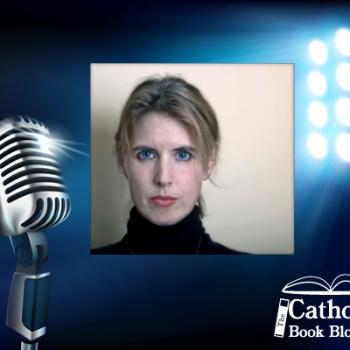 This week’s interview is with Dr. Diane Moczar, author of a number of great books on Church history.
This week’s interview is with Dr. Diane Moczar, author of a number of great books on Church history.
Q: What inspired you to write The Church Under Attack?
A: Well, my very first book was about the early centuries of the Church, and I had always felt I should finish the story. When I was a history professor I taught both History 101 and 102, and I wanted a Catholic History 102 book to keep the first one company.
Q: What do you feel was the most threatening attack on the Church, the one that could have gone terribly wrong?
A: That’s a tough one. The most spectacular attacks, like the Roman persecutions, the Protestant Revolt, the Islamic invasions, and Communism, could all have gone “wrong,” in the sense of triumphing over the Church. That they did not was because God’s help to His embattled people enabled them to defeat their enemies. What is much more insidious than those enemies is the variety of creeping corruption–like worldliness, apathy, secularism, and indifferentism–that takes hold of the unwary Catholic and makes him just like everybody else in his godless world. He hardly notices that this is happening because there is no visible, armed enemy to watch out for anymore.
Q: I am finding The Church Under Attack to be a very well written and researched book. How much research and how much time did it take you to complete this book?
A: As to the writing, I am blessed with the gift of being able to write pretty fast and have it come out right; I generally have only a minimum of spelling and grammar editing to do. I am also very blessed with having my own research library, accumulated over many years. (I might just mention here, since it’s the subject of an article I’m working on, that during the disastrous cultural revolution that followed Vatican II, libraries of irreplaceable Catholic books were being emptied willy-nilly, the ‘outdated’ books ending up in the dump or in used book stores for a dollar or less each.With the help of a priest who knew what the best books were, we began a wonderful library of research material and spiritual reading.) There is also a lot of primary source material available online, as well as through inter-library loan, which I also occasionally use.
Q: In my view, today ‘s society is headed into a downward spiral rivaling that of the Roman Empire. This book deals with a 500 year period of attacks on the Catholic Church. Can you see any of this being repeated in the modern world?
A: The attacks have never actually stopped, and never will as long as Satan exists. Certainly today there always seems to be somebody attacking the Church for something, as readers of Dr. Donohue’s Catholic League Web site and publications (from which all American Catholics can profit,) know very well. Devotees of Fatima–that forgotten episode in twentieth-century history–know that a period of peace was promised to the world, along with the conversion of Russia, provided that Russia is consecrated to Our Lady of Fatima in the precise form she specified. Presumably that has not yet been done, from the looks of the world today.
Q: If someone wanted to dive deeper into this period of church history are there any other books you would recommend?
A: For this specific period I have reading suggestions at the end of the book. For Catholic history in general, any of the works of the late Warren Carroll, Henri Daniel-Rops, Eleanor Shipley Duckett, Antonia Fraser, and Regine Pernoud are good reading, as are the wonderful historical novels of Msgr. Robert Hugh Benson about characters of the English Reformation.
Q: You have written other volumes as well. Would you like to take a moment to briefly summarize a few of those?
A: My first book, now out of print, was What Every Catholic Wants to Know: Catholic History. It was based on articles I wrote for The Latin Mass magazine on the early centuries of the Church. I continued the story in The Church Under Attack.. In between I wrote Ten Dates Every Catholic Should Know and Seven Lies About Catholic History, both of which attempted to organize important historical developments in a user-friendly format. Islam at the Gates is the story of the long struggle of Christendom against the formidable onslaughts of the Muslim Turks, and a reminder that many of the elements that provoked that nightmare are still with us.
Q: Time for my signature ending question. This is a blog about books. What is currently on your bookshelf to read?
A: I’m afraid I don’t read many new books; too busy writing them, perhaps! I just started rereading Tolkien’s The Silmarillion, having just gone through the Trilogy for the third time. P.G. Wodehouse is always part of my dinner time/bedtime/ general relaxation reading. I have a whole shelf of his books and when I come to the end of it I start over again.















